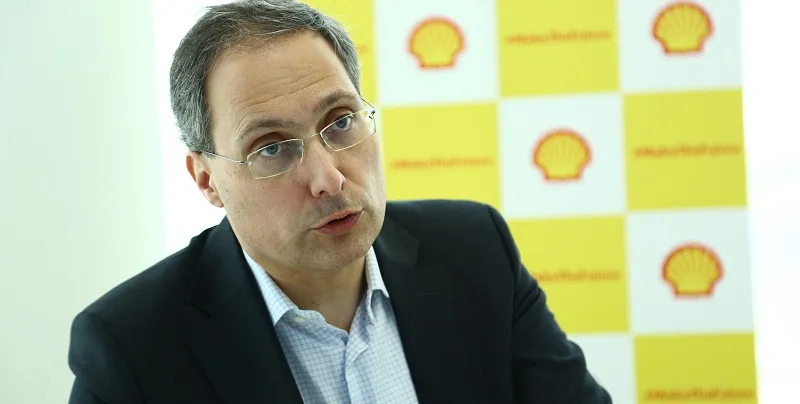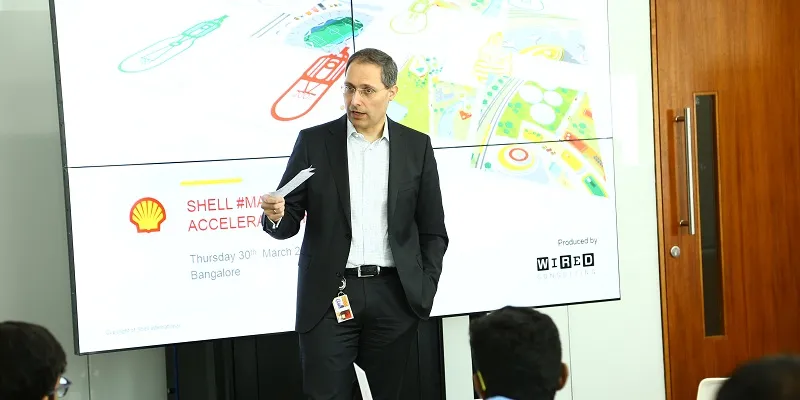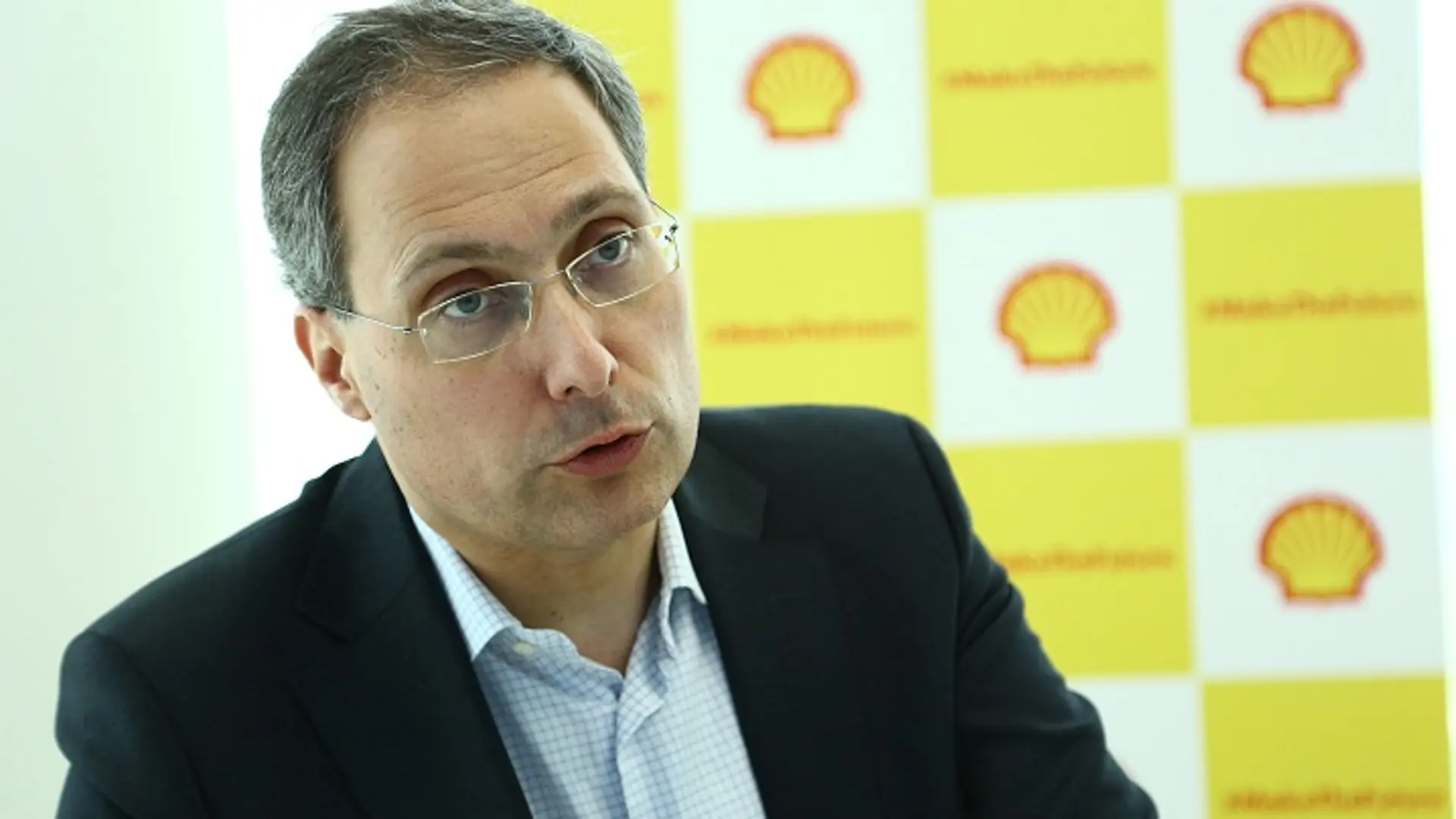Indian startups can push for global energy conservation: Yuri Sebregts, Shell CTO
In his 26 years at Shell, Yuri Sebregts has risen from a managerial position to become the executive vice president, Innovation and R&D, and Chief Technology Officer. He has played his part in ensuring that the company works with the best global partners and, since 1996, he has been closely associated with Shell’s involvement with startups. He says technology makes it possible to crunch volumes of data to conserve energy and also facilitate exploration, and feels India has the skills to enable the world, not just with software but also with computational sciences to build global competencies. Startups — Indian and otherwise — are the primary focus for the future of Shell’s innovation. On the occasion of the establishment of the latest Shell Technology Centre in Bengaluru, YourStory caught up with Yuri for a freewheeling conversation. Edited excerpts:

YS: Global corporations are seeing a shift in focus and talking about going digital. What does digital transformation for Shell mean?
Yuri: Going digital is not just about changing your website. It is the convergence of technology which includes analytics, machine-to-machine communication, and other digital formats where data can be used to make decisions. For example, scientists can understand the right kind of catalyst to be used in our refineries. Data was always available, but the speed and depth at which data is being used is what helps scientists and managers take faster decisions.
YS: What is the history with startups and Shell?
Yuri: The Bengaluru centre is our third technology centre. The first one is in Amsterdam and the second is in Houston. So why are startups important? Global corporations are always looking at partners with innovative ideas. Startups and their founders offer that innovation, and a large corporation benefits from new ideas. For Shell, it is about the future of energy. Startups also help in making fuels efficient and reducing the carbon footprint. Shell has always been open to working with partners, and since 1996 we have worked with several technology companies. The Shell Foundation and Technology Centre selected 10 startups out of 50 applications — in India — for the best green technology in the country prize. The top three companies — Graviky Labs, Smart Joules, and Carbon Masters — went through rigorous questions and we tested their understanding of the markets they operate in. Any startup that gets selected by Shell has to get used to the due diligence that we conduct on the company. They will have to get used to us questioning them like a VC. The India centre will support startups that can benefit our global business. So the centre will focus on India’s software and computational talent.

YS: What is your view on climate change?
Yuri: Clearly, the world needs more energy and less carbon emissions. Shell’s endeavour is to go in this direction and also support new technologies that can work with renewable sources of energy. But if you look at countries like India, the consumption of energy is only going to go higher. We support the views presented by the Intergovernmental Panel on Climate Change, which stipulates that global warming should be kept under control. But this can happen only if technologies move in the right direction. All of us are focused on innovation when it comes to climate change. For example, we are working with a company that is capturing energy with kites. This is very innovative because you do not need these heavy wind turbines anymore. This British startup called Kite Power Systems generates energy with kites connected to a spool and a drum, which moves when the wind sways. The energy is generated based on the movement. Each kite provides a lot of energy and can provide energy to hundreds of homes. So our partnerships are deeper. We have also signed a $25-million partnership with the Bio Sciences Institute at Berkeley to facilitate research on alternate energy.
YS: Why has the carbon credits market collapsed and is it going to be an important centre?
Yuri: Yes, there needs to be an agreement on the price with the global fraternity. Once this is done, citizens, companies, and countries can come together to get this market to become robust. Today there must be an incentive to use energy and conserve it too. The point of contention is that each country has its own interpretation of carbon credits — there has to be a global consensus.







![[Watch] Ninjacart Co-founder Thiru chalks out his journey in inventing the wheel for fresh produce ecommerce](https://images.yourstory.com/cs/2/a182c7e0140711e987e2f7248b252f46/Capture51570470464543PNG?mode=crop&crop=faces&ar=1%3A1&format=auto&w=1920&q=75)